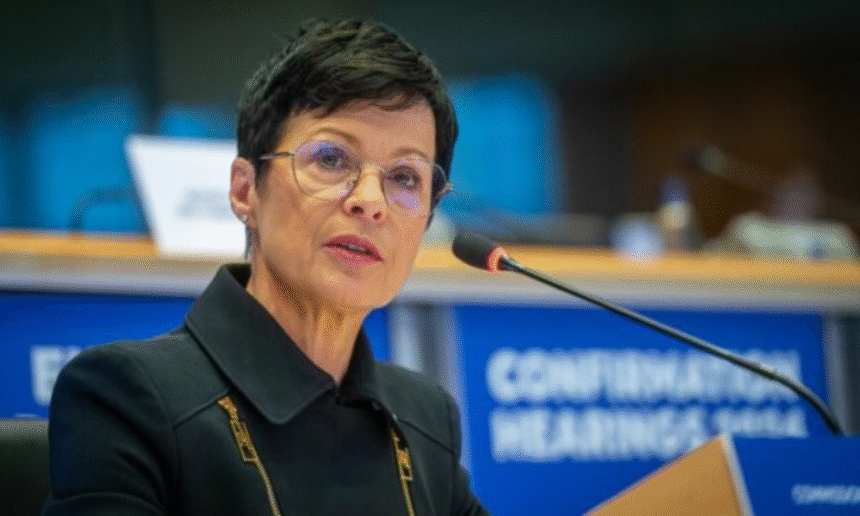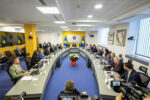The European Union is adopting a more proactive and assertive stance to shield candidate countries from foreign interference, particularly from Russia, according to European Commissioner for Enlargement Marta Kos.
Speaking ahead of the EU’s annual enlargement report, Kos emphasized the bloc’s “responsibility” to help aspiring members remain on their European path, saying the EU had “learnt from past mistakes” with the UK and Georgia and was now taking decisive action to protect its partners.
“For the first time, we have invested resources — both men and women — to help fend off foreign malign interference,” Kos said during a group interview with Euronews and other outlets.
A key part of this new strategy was the deployment of the EU’s rapid hybrid response team, which was first sent to Moldova — one of the countries most vulnerable to Russian hybrid attacks due to its pro-Russian breakaway region, Transnistria.
Moldovan President Maia Sandu had warned that Russia was spending “hundreds of millions of euros” to influence recent elections, but thanks to EU support, her pro-European party secured a landslide victory.
Kos said this marks a clear shift in the EU’s approach:
“When the UK decided to have a referendum, we treated it as their internal affair — we didn’t even say, ‘please stay.’ The same with Georgia — we knew Russia’s interference was strong, yet we didn’t help.”
Now, she said, the EU is fighting back against Russian disinformation and has become “better” at countering and reframing hostile narratives.
“We have studied Russian narratives well, turned them around, and used them in support of Europe,” she added.
The European Commission is set to publish its annual enlargement progress report next week, where Moldova, Montenegro, and Albania are expected to receive positive evaluations for their continued progress toward European integration.
However, Ukraine’s accession process remains blocked by Hungary, and Moldova’s advancement has stalled due to its informal linkage with Ukraine’s bid.
Kos concluded with a challenge to EU leaders:
“Next year, 2026, will have higher stakes with one central question: Can we deliver as the EU?”
EU leaders must unanimously approve each new step in the accession process — a system European Council President Antonio Costa recently tried, but failed, to reform by allowing qualified majority voting on cluster openings.
The EU is also exploring gradual integration mechanisms, offering funding and program access to reforming countries while reserving the right to revoke them in case of backsliding.
One proposed safeguard could even limit veto powers for new members, to maintain EU unity.






